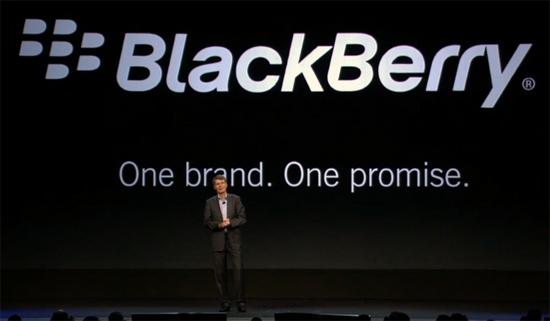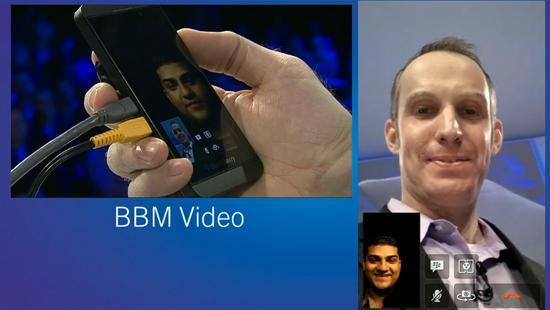
Yesterday, BlackBerry officially launched BlackBerry 10. You read that correctly. The Waterloo-based company is no longer called Research In Motion, or RIM. It’s all BlackBerry, all the time. With the company name change, it’s obvious now more than ever that everyone involved is gearing up and digging in for the days, and months, to come. This is their last-ditch effort, and they’re going to give it a real shot. BlackBerry knows they are the underdog, but that doesn’t mean they are going to roll over.
Today, BlackBerry 10 is available in the United Kingdom. If you live in that particular neck of the woods, you can choose a few different carriers to get your new phone fix. It will be available in Canada very soon. But here in the United States, we won’t see a launch until March. And that’s just for the BlackBerry Z10, the all-touchscreen device. If you want the QWERTY-packing BlackBerry Q10, you’ll have to wait until sometime in April. The reason for the “delay” is simple: It takes time to test the devices on US-based wireless carriers. So, we have to wait.
Is that a bad thing? No, but it isn’t great, either. In the mobile industry, we are all actually accustomed to seeing a phone get announced, but not released for a few weeks, if not months later. We’ve been forced to grow accustomed to that, because that’s just the way it has been for so long. BlackBerry broke that mold, more or less, by launching their new devices and software in stores the very next day. They should, without a doubt, be commended for that. Even if it isn’t here in the US, it’s a start.
I didn’t watch the livestream of the BlackBerry 10 event. I just watched my Twitter feed and our liveblog. There were a few moments where I thought about turning on the stream, to see what was going on, but they quickly faded. I realized that BlackBerry wasn’t really showing off anything I hadn’t already seen. Sure, it’s great to see the phones officially unveiled, or another look at BlackBerry Peek or Hub, but again, it’s all things I’ve seen before. The event, for me, just turned out to be a waiting game until they announced a launch date and pricing.
Here in the States, that turned into Verizon announcing they’d be the exclusive carrier to pick up the white-themed BlackBerry Z10, and that they’d be launching it sometime in March. Pricing was a relief, though: $200 on a new, two-year contract. So, at least BlackBerry won’t be dead on arrival, based on pricing. That’s another step in the right direction. It would seem that BlackBerry is doing all of these little things correctly, and if that keeps adding up, we should have a winning solution on our hands.
I spent the majority of yesterday looking at BlackBerry Z10 (along with BlackBerry 10 reviews, when separated) reviews, reading through them, and watching as my Twitter feed talked about the device. I saw a lot of positives, and not a lot of negatives. We have to remember that this is version number one for BlackBerry’s brand new mobile operating system, and it’s being given to people in select markets already. We should expect hiccups, glitches, or other noteworthy temperamental hang-ups. And yet, there weren’t many to be talked about, it would seem.
BlackBerry 10 looks to be a solid mobile OS.

I’ll tell you that I’m still excited to get my hands on a BlackBerry Z10. (I thought I’d want the Q10 more, but I don’t want the smaller screen and physical keyboard combination anymore.) I can tell you that I still think BlackBerry 10 is a fantastic looking OS, and that the gesture support is something that the mobile industry absolutely needs to break from these on-screen buttons. I am very excited to get BlackBerry 10 in my hands. I know that I won’t be able to use it as my daily driver until a few apps are supported, but I want to try it.
But it doesn’t matter that I’m excited for BlackBerry 10. In fact, it doesn’t matter that 2 million users may be excited about BlackBerry 10. BlackBerry simply can’t survive if they’re only talking to the BlackBerry lovers of old. It just can’t be done. I know a few people who still use BlackBerry 6-based devices, but they aren’t using them because they love BlackBerry, or BBM, or Canada. They are using them because they’re simply waiting for their upgrade. They aren’t waiting for a new BlackBerry device.
In fact, three of the six I asked last night didn’t even know there was a new BlackBerry coming out.
BlackBerry is late, even by their own standards. BlackBerry 10 should have been released last year, and there are so many obvious indicators of this, just by looking at the hardware. We’ve got a dual-core processor. We’ve got a 4.2-inch display. We, and the mobile industry, has for all intents and purposes moved beyond both of those things. Customers want specifications that pop off the page, and the only real spec that the BlackBerry Z10 has is 2GB of RAM. The battery isn’t huge. The 16GB of memory is right down the middle-of-the-road of acceptability. (Unless 128GB of storage becomes the standard, which would happen in just a few months.)
The BlackBerry Z10 looks like an awesome phone, with yesterday’s specifications. We’re looking at an operating system that’s supposed to drive new life into the mobile industry itself, by providing new and fresh ideas, but we’re basing those hopes on old hardware. There’s something about that that just doesn’t sit right with me.
Of course, BlackBerry 10 is optimized to work on those hardware specifications, so it’s still smooth (as iOS, some say), and there aren’t any real hang-ups to fret over. And, to be honest, in a perfect world that’s all that would matter. But if a customer hears about the latest quad-core phone from HTC, and honestly believes that a quad-core processor-based device will make their phone run “better,” why would they even look at the BlackBerry Z10?

That same process is the same one I’ve seen in several reviews, too. While all of them are positive that BlackBerry 10 is a great OS, and that it has a lot of features to talk about, they all point out the same, unabashedly obvious question: Why switch? Why should someone who uses an iPhone, and isn’t bored with it, switch to a BlackBerry 10 device? Or, even if that iOS user is bored with Apple’s mobile offering, why would they switch to a BlackBerry Z10 and not, say, the One X+ by HTC, or the Galaxy S III by Samsung? And if an Android user isn’t completely dissatisfied with their Google mobile experience, why would they switch to BlackBerry’s new offering?
Truth is, I can’t even see why someone who’s just started using a Windows Phone 8-based device would want to switch. With Microsoft’s expanding ecosystem, for anyone who has a household with multiple Windows 8 devices, or an Xbox 360 for that matter, Windows Phone 8 just fits nicely into the group photo. Why switch?
I honestly never wanted to compare BlackBerry’s situation to HP’s or Palm’s, but I can’t ignore it. I think BlackBerry 10 is great. I love the gestures. I think the hardware is nice to look at, even if it isn’t the most high-end device on the market (in either the Z10 or Q10 models). And I think BlackBerry did an astounding job building these devices, and the software, from the ground up to give the market something worth looking at. I just don’t think it’s going to pan out.
BlackBerry 10’s main feature is its gesture-based operation, and even if I think it’s good enough to sell phones, I’m not sure it’s reason enough to switch for the majority. More to the point, BlackBerry 10 doesn’t have a killer app to make people switch. Sure, the new BBM is great, but you need someone else with a BB10-based handset to really appreciate it. To appreciate it at all.
I refuse to say that BlackBerry 10 is dead on arrival here in the States, even if it doesn’t look like I’m painting a very bright picture. I think if they can sell enough devices to survive the first year, and really crack out additional features for BlackBerry 10 (or whatever the next major update is called), they could start to sway customers their way. They just need to survive for the first year, and let their software developers really keep thinking out of the box. But it is possible it's just too little, too late.
Do you think BlackBerry 10 has any shot now that it’s officially announced, and will be available in March? Can it compete against Windows Phone? Does it even have the smallest chance of going up against Apple’s iOS or Google’s Android? Do you think BlackBerry 10 is dead on arrival? Let me know.